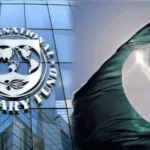Pakistan and the International Monetary Fund (IMF) have reached a consensus in a bid to abolish two baggage and gift schemes for car imports and tighten the Transfer of Residence (ToR) scheme, The News reported, citing official sources. While commercial import of five-year-old used cars will be permitted, it will be subject to stricter conditions and enhanced safety safeguards.
The IMF has set a deadline for obtaining approval from the Economic Coordination Committee (ECC) of the Cabinet to implement these changes within the current month.
The consensus comes ahead of the scheduled conclusion of review talks for the second review of the $7 billion Extended Fund Facility (EFF) and the first $400 million tranche under the $1.4 billion Resilience and Sustainability Facility (RSF).
Under the revised framework, the baggage rules and gift scheme for car imports will be abolished. For the ToR scheme, vehicles can only be imported from countries where the individual has resided for at least one year, and measures will be taken to prevent misuse of the program.
Officials noted that imported cars often transit through Dubai before entering Pakistan, highlighting the need for tighter controls to curb violations.
On the other hand, Former President of the SAARC Chamber of Commerce and Industry (SAARC CCI), Iftikhar Ali Malik, urged the government to reconsider the liberalisation of commercial imports of used cars to protect Pakistan’s domestic automobile sector and preserve jobs for thousands of workers.
In a statement, Malik stressed that both developed and developing countries protect their local industries and called for a long-term policy framework that supports sustainability, competitiveness, and innovation in the auto sector. He warned that liberal imports of used cars could deter future foreign investment in Pakistan’s growing automotive industry.
Malik said the government should incentivise local manufacturing and assembly through technology transfers and investor-friendly policies instead of an import-driven approach. He highlighted that local manufacturers have invested billions of rupees, provide employment, and contribute significantly to the national exchequer through taxes and duties.
“Balancing imports with support for domestic industry will not only boost employment but also reduce the import bill, stabilise foreign reserves, and foster industrial growth and economic self-reliance,” he added.
Discover more from Brackly News
Subscribe to get the latest posts sent to your email.



